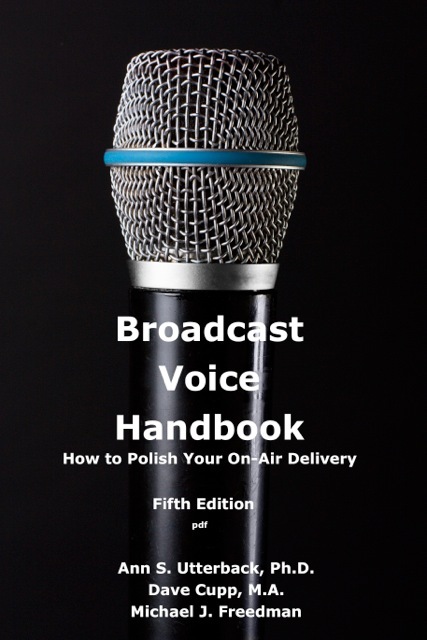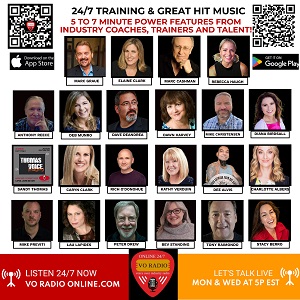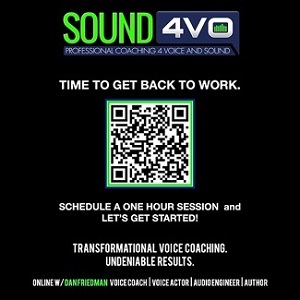|
VOICE ACTING How To Ar-Tic-U-Late Your T's And D's - Without Overdoing It September 8, 2016  By Ann Utterback By Ann UtterbackVoice Specialist and Author, Broadcast Voice Handbook Schools are beginning a new year around the country, but I’ve got a final exam for you! Almost everyone has difficulty articulating the /t/ or /d/ sound when that sound is tucked in between two other consonants as in the word, "expertly.” It just seems too hard to hit that /t/, and if we do try, it sounds over-pronounced. An artificial and over-pronounced delivery is as offensive as using sloppy articulation and should be avoided at all costs. But if you’re really diligent, you can hit these /t/ /d/ sounds without sounding over-pronounced. BREAK IT DOWN Here’s the trick: learn to produce a /tl/ or /dl/ combination of sound smoothly and effortlessly. Let’s break it down.
The /l/ sound is a bilateral sound, which means it comes over the edges of the tongue. COMBINE THE TWO Now combine just the /t/ and the /l/ to make a /tl/ sound. Explode the /t/ and quickly pull the tongue back for the /l/. This gives you a little couplet to practice. To make these two sounds together requires a LOT of practice, but if you stay at it, the sounds will begin to blend. Practice when you’re driving or have a few minutes alone. You don’t have to remember anything except /tl/ and /dl/ to practice. PRACTICE THESE WORDS The next step is to plug this blend into some words. Here’s a list to practice (taken from Improving Voice & Articulation by Hilda Fisher):
SAID ANOTHER WAY .. If not, here’s another thing to try: Think of the word as divided right before the /t/ or /d/ so you say, "mos tly” or "fon dly.” Putting the cluster by itself can make it flow easier. Practice starting with a big break and then reduce the space until the two parts of the word are united, but you’re still able to make the clusters easily. I said you’d need to practice diligently to make this work, so go for it! And if you are a nut about proper pronunciation like I am, check out Kenyon and Knott’s, A Pronouncing Dictionary of American English. It’s been around since 1953 and is the go-to source for pronunciation. It uses the American Phonetic Alphabet, but there’s a great chart in the front to use. ------------------------------------  ABOUT ANN ABOUT ANNAnn
S. Utterback, Ph.D., is a voice specialist with more than 40 years
experience and has helped hundreds of people make the most of their
voices, working with broadcasters, voice over artists and podcasters
around the world. An author of eight books and over 50 articles on
voice, her Broadcast Voice Handbook is a classic textbook offering more advice on
how to improve your voice over performance.
Web: http://OnlineVoiceCoaching.comClick for: Broadcast Voice Handbook |
|
|
For essential voice-over business strategies
Email alerts to new VoiceOverXtra articles
Inspiring interviews help your VO career
With Sean Daeley and Paul Stefano - check it out!
As of the NEW website launch, 03/22/2012



.png)






Pamela Wood, Professional Voice Actor.
Thank you for your input. I agree with you on all fronts, but I'm also from mid-west America. Diction is "regional". Almost all of my work is from the mid-west. I speak like they do. I'm not usually hired from the North East or the South. I don't speak like they do.
Another depressing tongue issue (see what I did there?) that is like fingernails on chalkboard is what is apparently prominent in New Jersey: not hitting at all the double "t" in the middle of some words. For example, "kitten becomes "kih-in." (And, in the same vein: missing the "t" in "dot com," saying instead, "dah-com.")